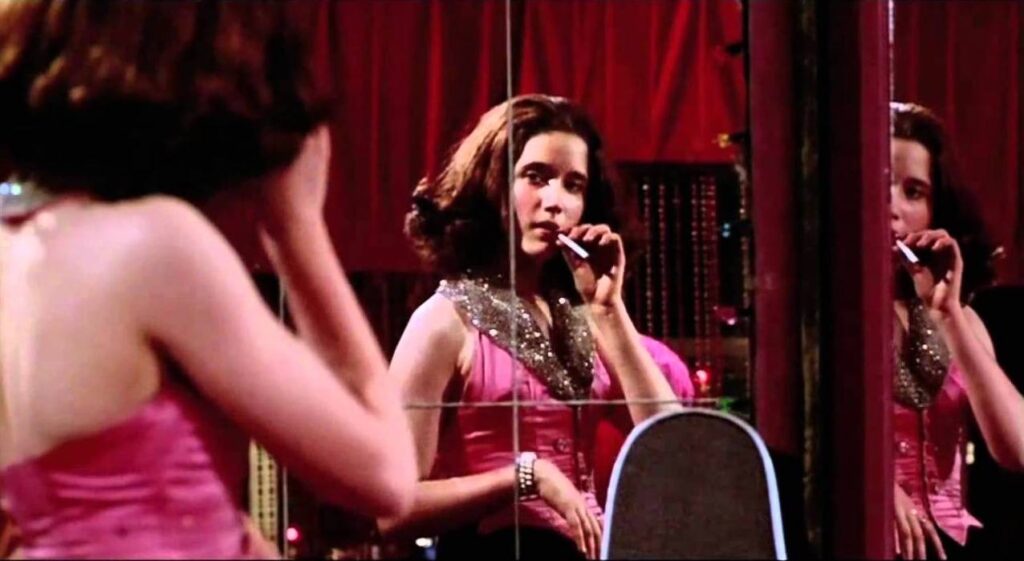
Times Square (1980) tells the story of two teenaged girls, the privileged Pamela Pearl (Trini Alvarado) and the street orphan Niky Marotta (Robin Johnson), who meet in a hospital ward and run off together. The two girls liberate and inspire each other as they live on the streets of New York City, gradually gaining a reputation as the Sleez Sisters for their acts of defiance and punk rock music. Radio DJ Johnny LaGuardia (Tim Curry) publicizes the Sleez Sisters’ ventures and helps Pamela evade her worried father. At the cusp of stardom the girls part ways, each a transformed and powerful individual.
In retrospect it’s easy to see the breadth of influence that Times Square has had on popular culture. Times Square encapsulated a zeitgeist that included works by musicians like Suzi Quatro and Joan Jett and the lives of cultural icons such as Christiane Vera Felscherinow and imbues them into the milieu of Times Square just as it was about to be gentrified. It was a fortuitous mix of disparate elements that helped to inspire the Riot grrrl generation.
Yet, beneath all of its cultural cache Allan Moyle’s film is structured like most female centered coming of age stories. The dramatic beats of Times Square match those of The Trouble With Angels (1966), but instead of nuns the girls in Times Square have Tim Curry and Fun City to reckon with. It’s this proven formula that allowed Allan Moyle to make his film with bankable producer Robert Stigwood and get his tale of female empowerment onto the big screen. And, unlike most female centered coming of age dramas, Times Square, with its Punk credo, is far more explicit with regards to the protagonists’ anti-patriarchal and anti-mental health stigmatization rebellion. The Sleez Sisters are outspoken, violent and subversive in a way that wasn’t truly imitated in this sub-genre until Foxfire (1996).
Even today a film with the tenacity of Times Square is a rarity (a film with this kick-ass a soundtrack is even rarer). In an age of renewed feminist conviction Hollywood still seems to balk at the idea of telling this kind of story and celebrating this type of necessary female rebellion. Now is the time to be making films like Times Square and where are the studios? They are making superhero flicks and attempting to revive franchises that have been dormant since the late eighties. It’s pathetic enough to make one want to throw a television from a rooftop.
